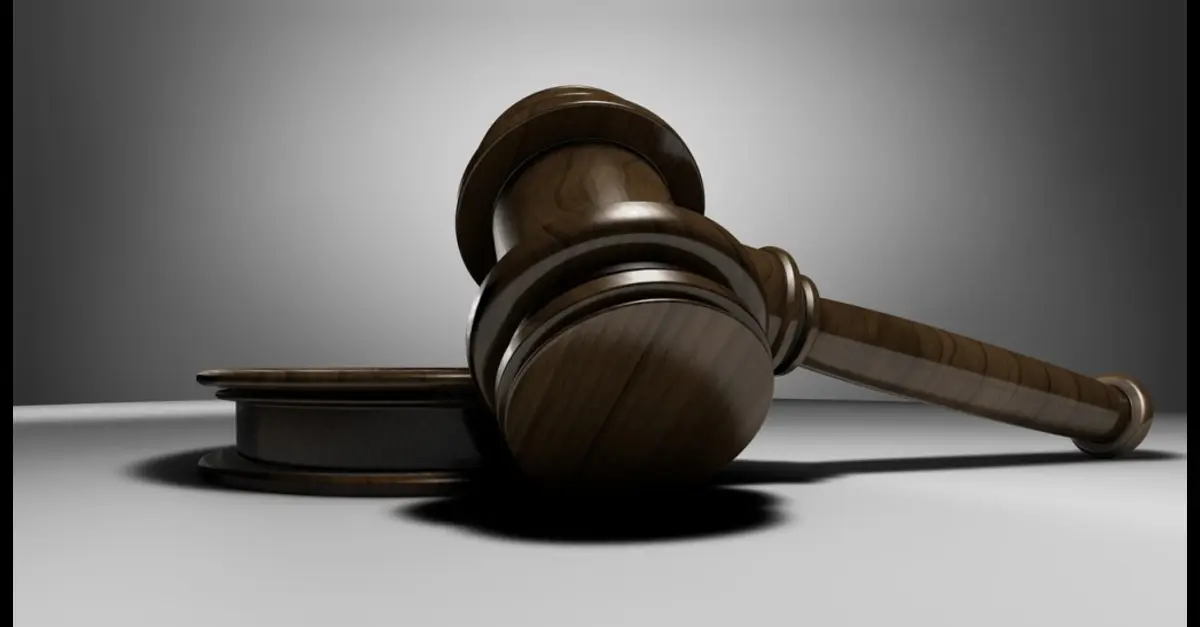Case Details
Case Name: B.V. Ram Kumar vs. State of Telangana
Case Number: Criminal Appeal No. (SLP (Crl.) No. 7887 of 2024)
Date: February 10, 2025
Quorum: Justice Sanjay Karol & Justice Sandeep Mehta
FACTS
B.V. Ram Kumar, was the Officiating Director at the National Institute for Empowerment of Persons with Intellectual Disabilities, Secunderabad. On February 2, 2022, the complainant, an Assistant Professor in Pediatrics at the institute, was called to the appellant’s chamber, where he allegedly reprimanded her in a loud and aggressive manner over complaints she had made against him. The complainant, who had recently recovered from COVID-19, claimed she suffered physical distress due to his behavior.
She lodged a complaint the same day mat/registered FIR No. On 65 out of 2022 on, at Bowenpalli Police Station, Hyderabad, under IPC sections 269, 270, 504 and 354, Raman Pratap Singh, 30, son of the late Rampal Singh Shanti Kunjyal (both deceased) of M.L.K Society, Chandanagri Colony, has been arrested. The inquiry found that the chargesheet under Sections 269, 270 and 504 of the Indian penal code (IPC) was justifiable for which section 354 of the IPC was dropped since sufficient material evidence was not proven. Respondent appeared before the Telangana High Court and filed a petition to withdraw the complaint under Section 482 of the CrPC and the High Court rejected the petition vide its order dated 3/05/2024. Aggrieved, he filed an appeal before the Supreme Court.
ISSUES OF THE CASE
- Whether the allegations in the FIR and chargesheet, taken at face value, constitute prima facie evidence for the offenses charged under Sections 269, 270, and 504, IPC?
- Whether the appellant’s actions of reprimanding the complainant and purported omission of providing sufficient PPE kits amount to a crime?
- Whether the High Court erred in not quashing the charge sheet when the allegations were devoid of the necessary elements of the offenses that were charged?
LEGAL PROVISIONS INVOLVED
- Section 269 IPC (Act done recklessly, which almost inevitably results in infectious diseases to spread, and thereby poses a danger to human life) -Specifies the act carried out recklessly, which very nearly means that infectious disease would be transmitted.
- Section 504 IPC (Insult intended to provoke a breach of peace) – Any direct affront which could invoke or stimulate violence or any other form of public riotous behavior.
ARGUMENTS BY THE APPELLANT
He asserted that the complainants had lodged such complaints to the Ministry which were all disposed of upon satisfactory response by him. Even if all the allegations are taken to be true, they omit crucial components of the offenses that were charged.
The appellant asserted that the alleged verbal altercation was a routine administrative discussion about the complainant’s performance, devoid of criminal intent. He also pointed out that the claims regarding inadequate PPE kits were unsupported, as multiple staff members confirmed there was no shortage. The appellant maintained that reprimanding a subordinate for work-related matters did not amount to criminal harassment or negligence under the IPC.
ARGUMENTS BY THE RESPONDENTS
The respondents have submitted that the High Court, even in dismissing the quashing petition, had not erred in the view taken by it that the allegations raised a prima-facie case of harassment. It was further argued that the complainant suffered continuous maltreatment at the hands of the appellant, as corroborated by witness statements. The prosecution further maintained that the appellant’s failure to provide PPE kits during the COVID-19 pandemic endangered the lives of staff and patients, justifying the charges under Sections 269 and 270, IPC.
ANALYSIS
The Supreme Court examined whether the allegations in the FIR and chargesheet satisfied the legal requirements for the charged offenses. Regarding Sections 269 and 270, the Court found no credible evidence that the appellant’s actions directly contributed to the spread of infectious diseases. The assertion of a lack of PPE was proved false as witness statements provided contradicting evidence making the claims void. According to Section 504, the Court noted that a spoken censure from an authority figure is not sufficient to constitute an “intentional insult with intent to provoke a breach of peace.” There was no evidence that the appellant’s words incited violence or public disorder. The Court emphasized that Section 504 requires both an insult and an intention to provoke a breach of peace—neither of which was established in this case.
The Court referred to precedents in State of Haryana v. Bhajan Lal and Fiona Shrikhande v. State of Maharashtra, which outline the principles for quashing criminal proceedings. It was reiterated that those cases in which the allegations do not amount to a prima facie offense deserved to be quashed to avoid abuse of the process of law.
JUDGMENT
The Supreme Court allowed the appeal, setting aside the judgment of the High Court of Telangana. The chargesheet and all other proceedings in opposition of the appellant were quashed, for the allegations did not amount to cognizable offenses as delineated under Sections 269, 270, and 504 of the IPC.
CONCLUSION
The implication of this result reinforces that workplace disputes and administrative punishments do not essentially amount to a criminal offense unless the criteria already established by statutory laws are satisfied. The Court pointed out that professional disputes should never be resolved using criminal law. In so doing, the Supreme Court confirmed its decision to quash the appellant’s charges, reinforcing the notion that there must, at the very least, exist circumstantial evidence of a crime to warrant prosecution.
“PRIME LEGAL is a full-service law firm that has won a National Award and has more than 20 years of experience in an array of sectors and practice areas. Prime legal falls into the category of best law firm, best lawyer, best family lawyer, best divorce lawyer, best divorce law firm, best criminal lawyer, best criminal law firm, best consumer lawyer, best civil lawyer.”
WRITTEN BY SUBRAT ASHISH KHARE


